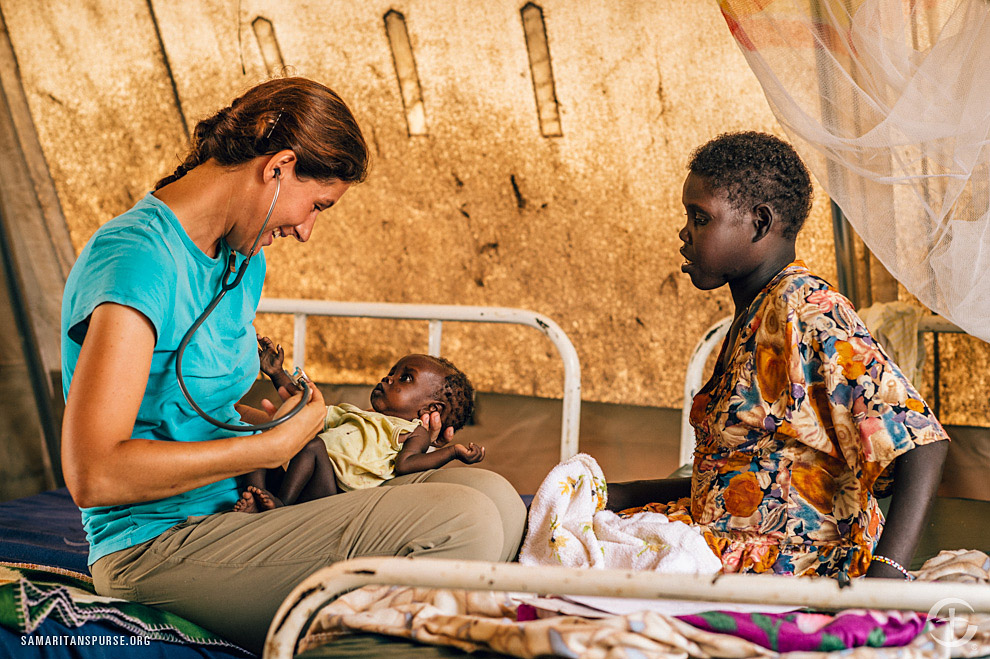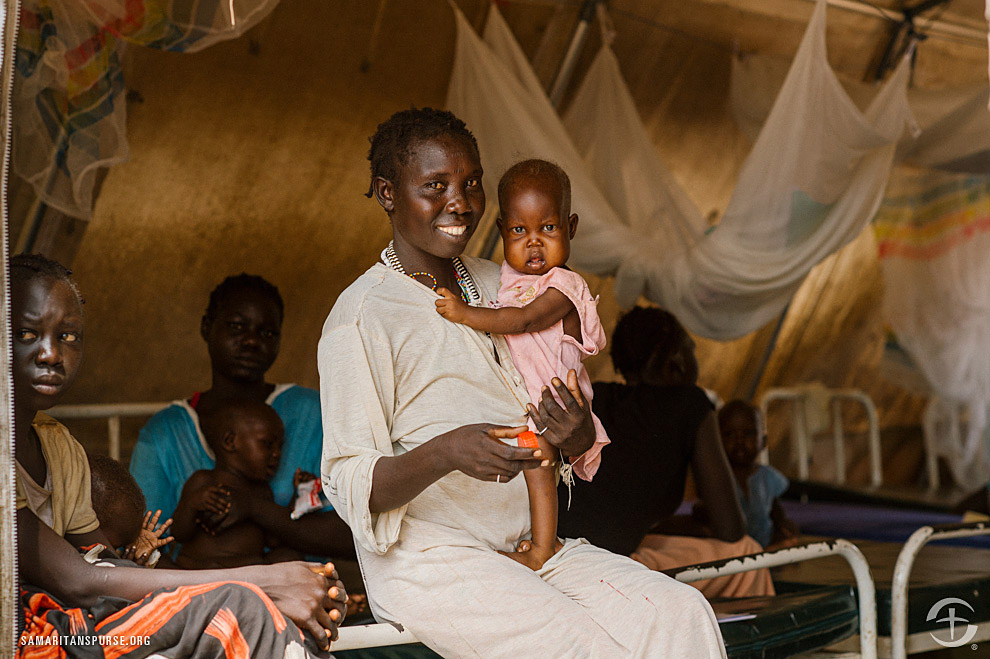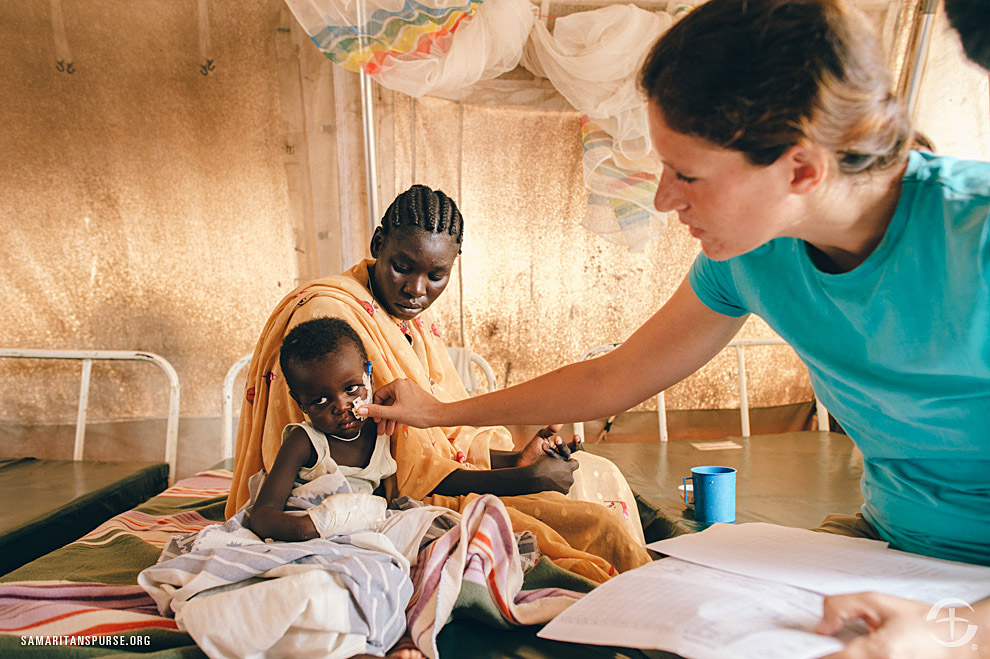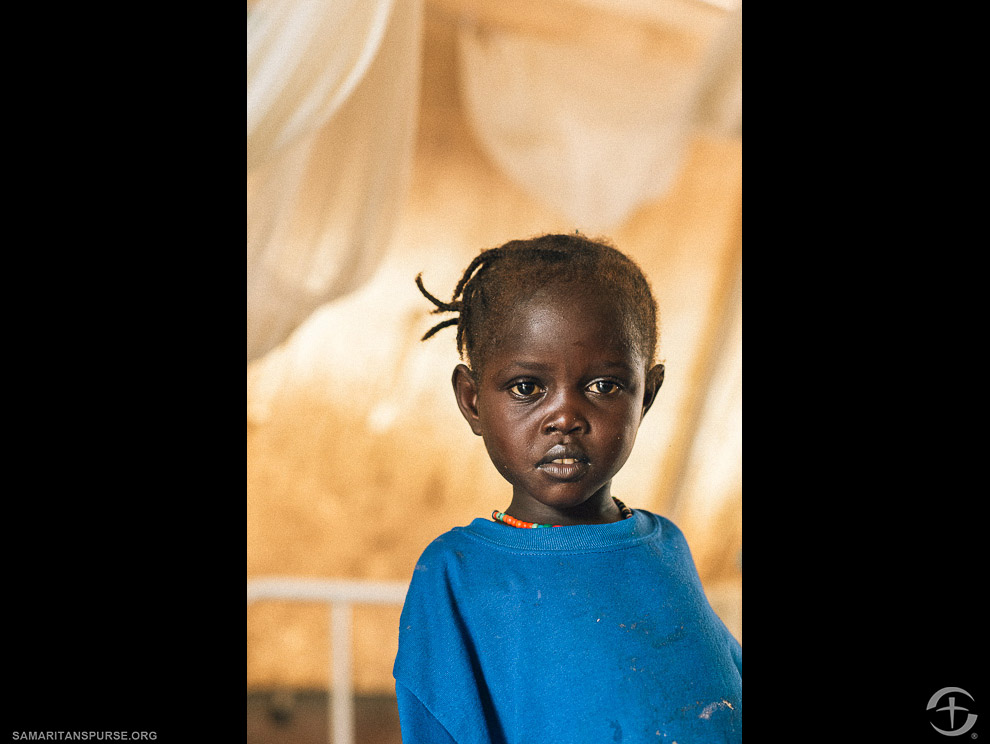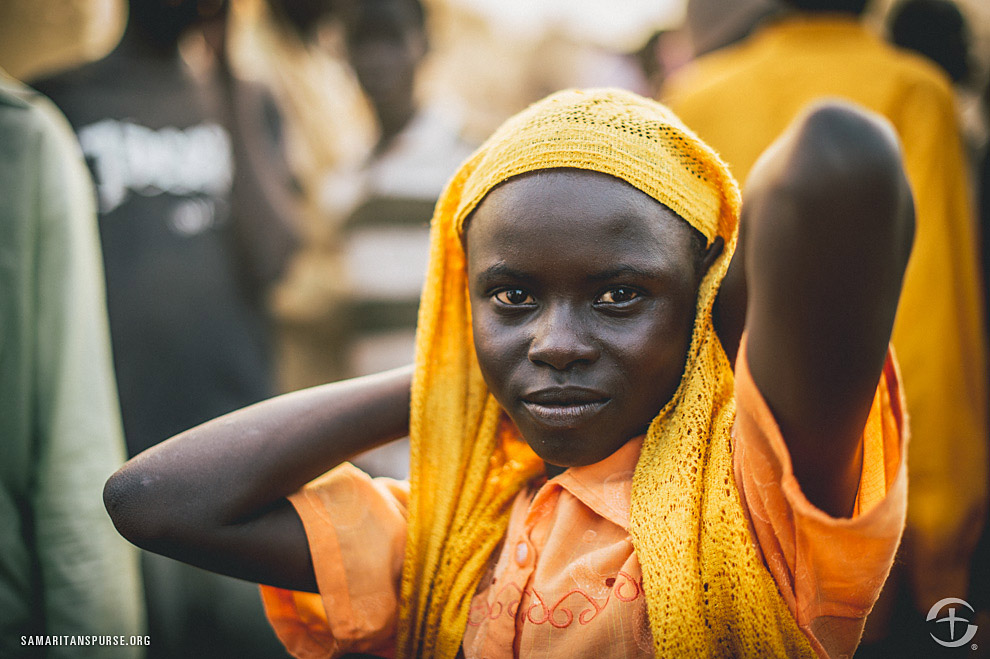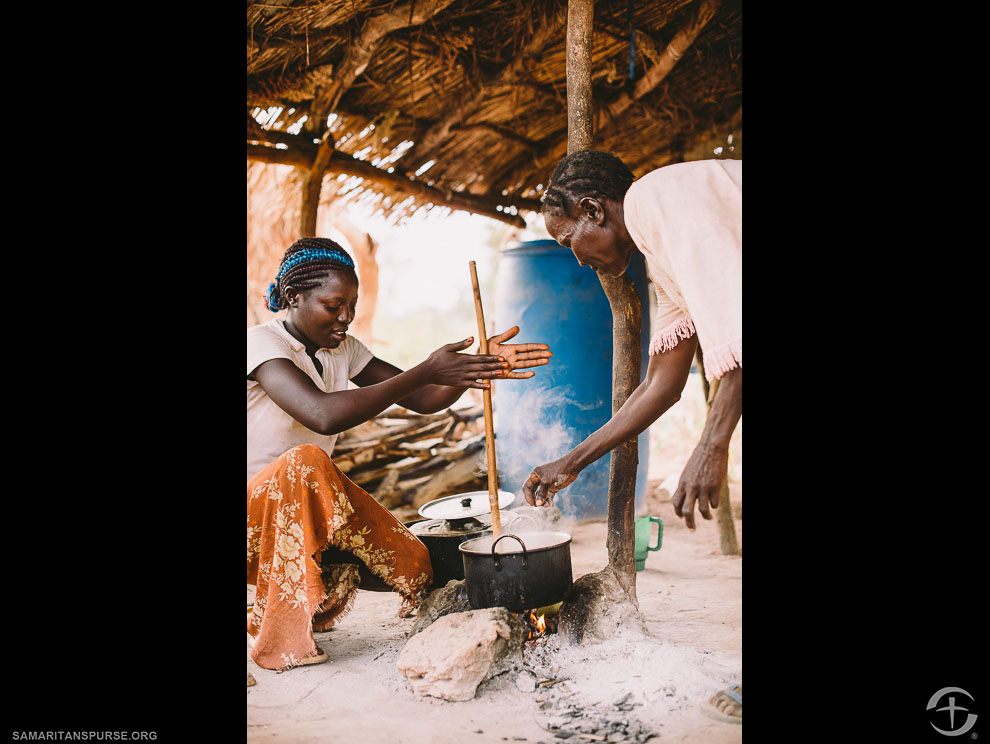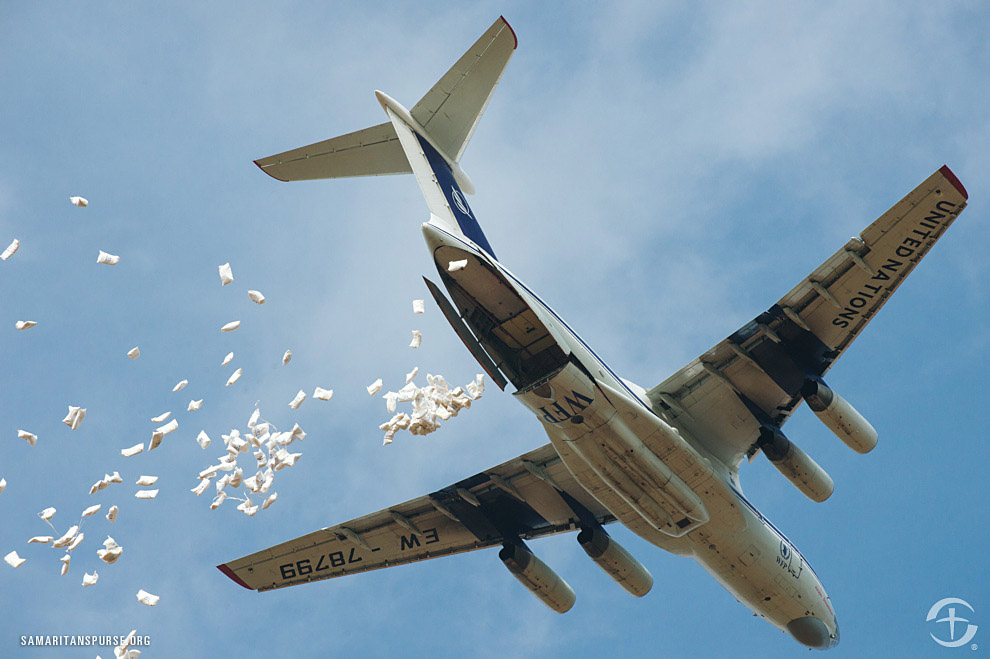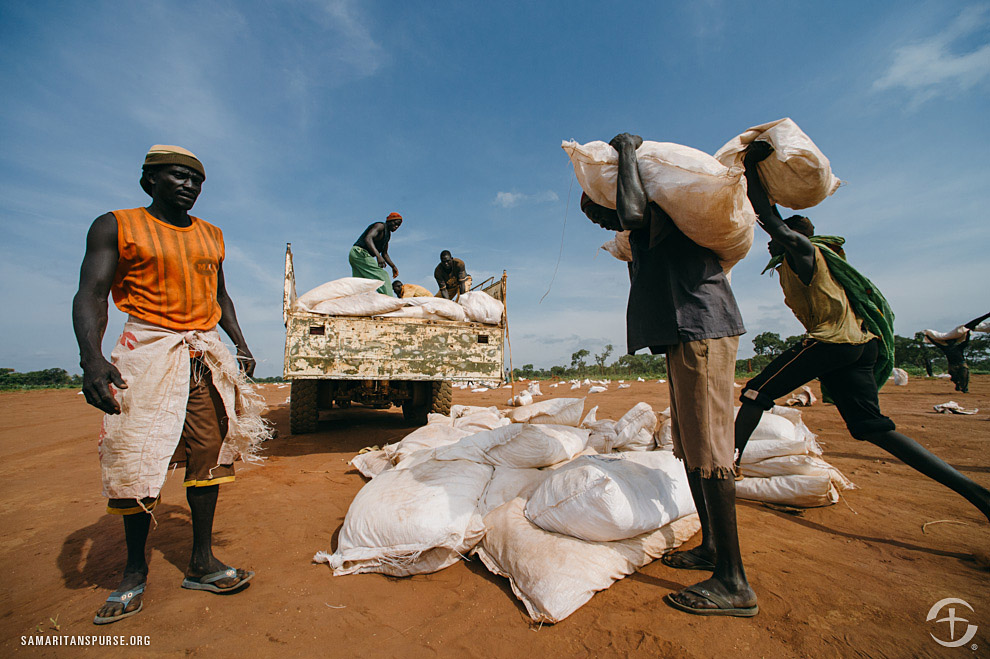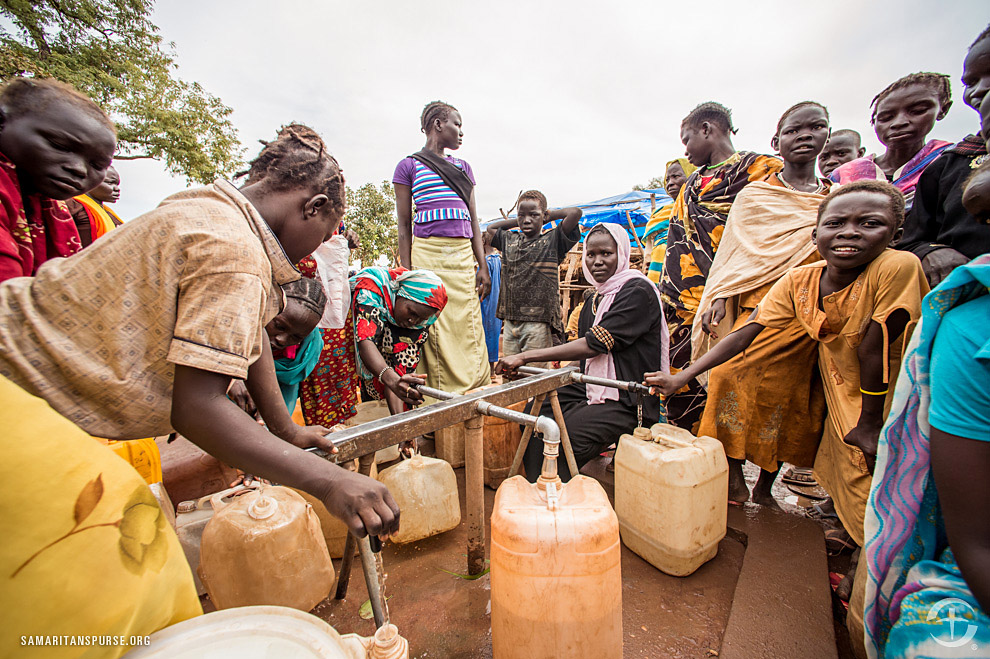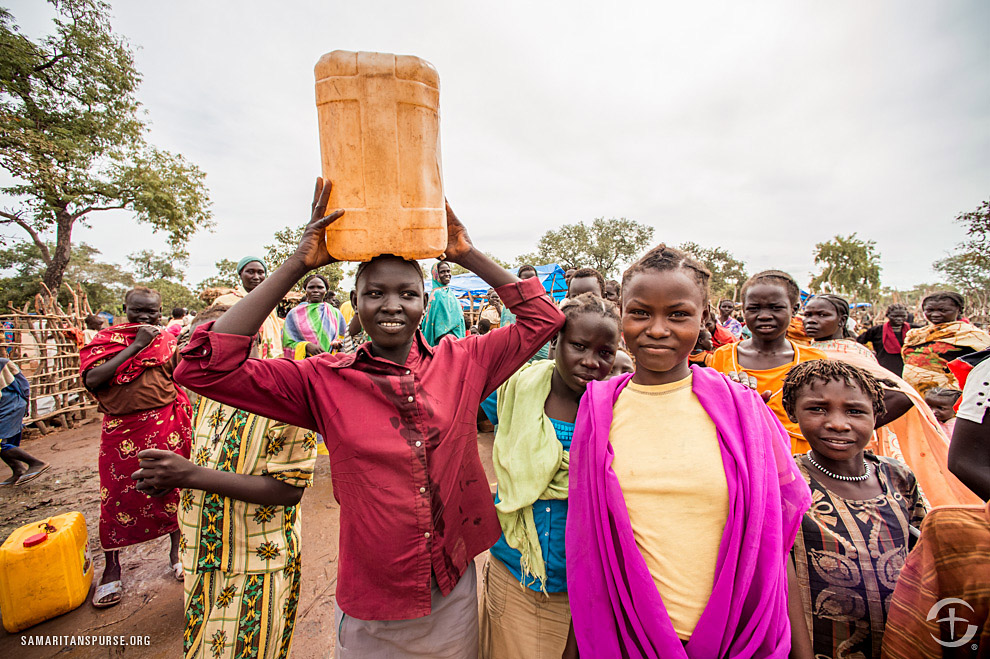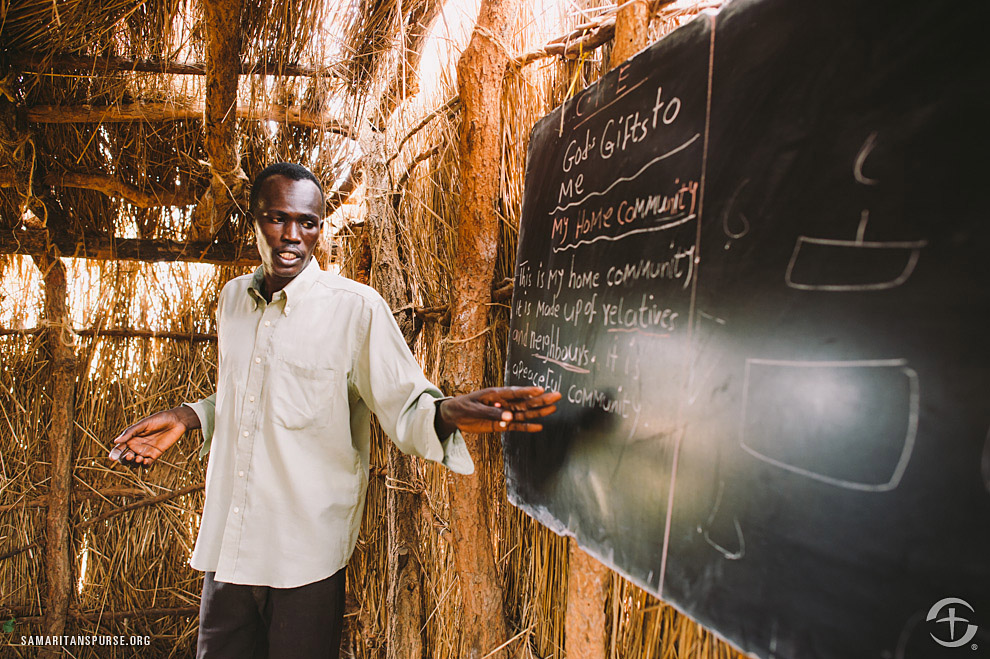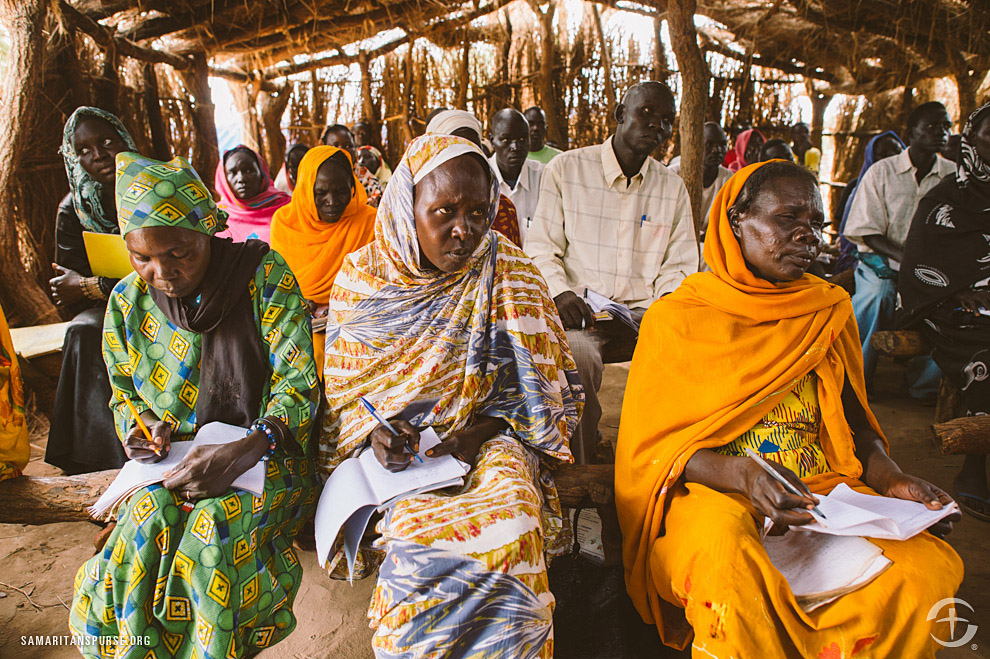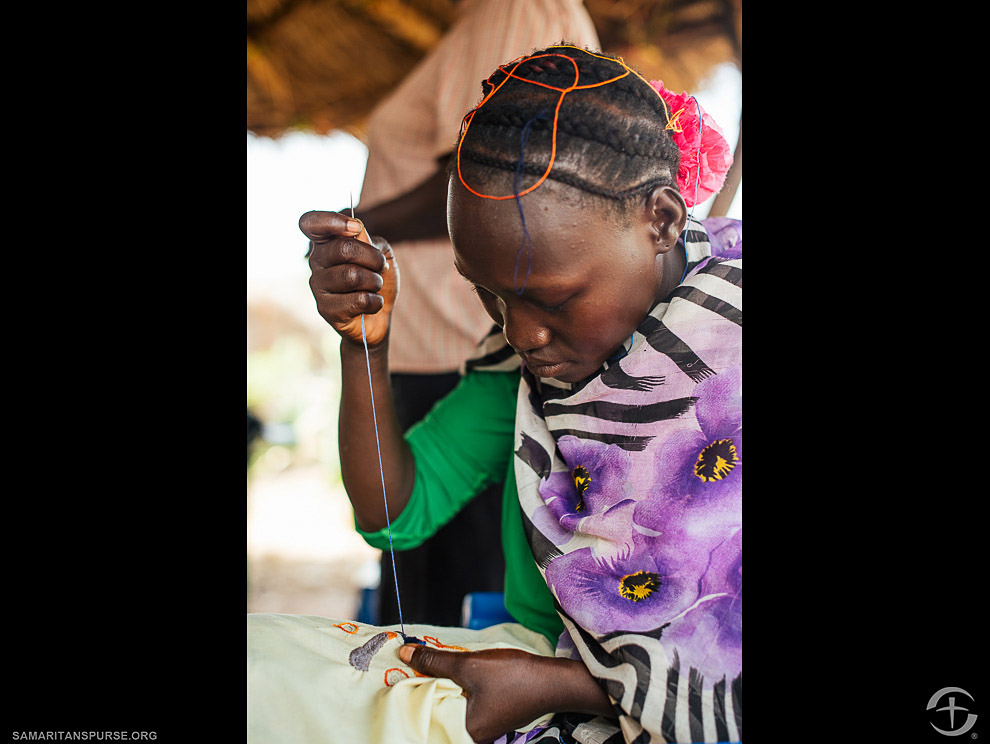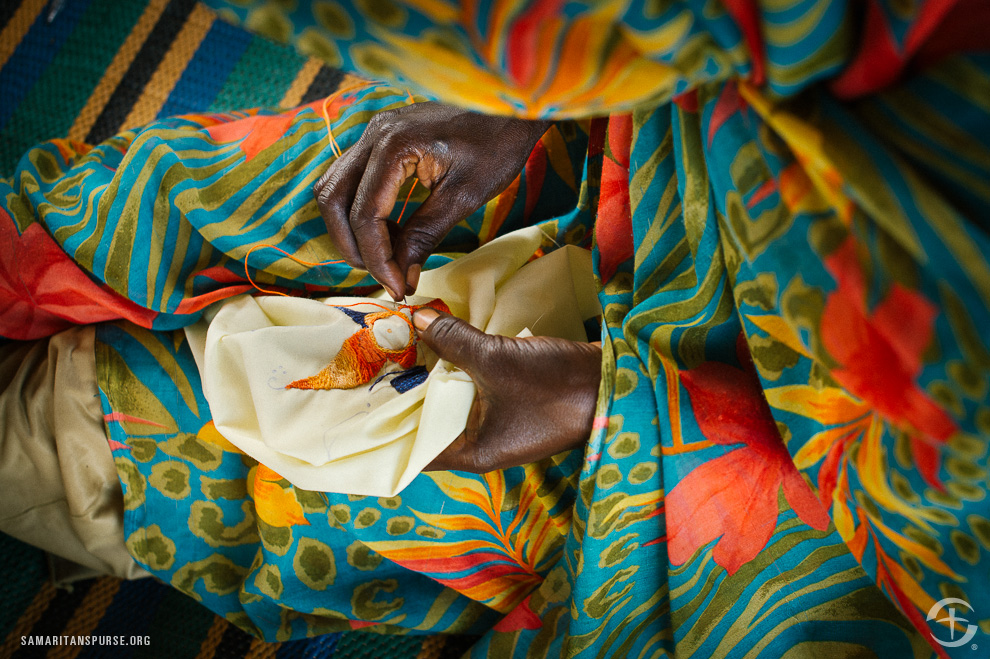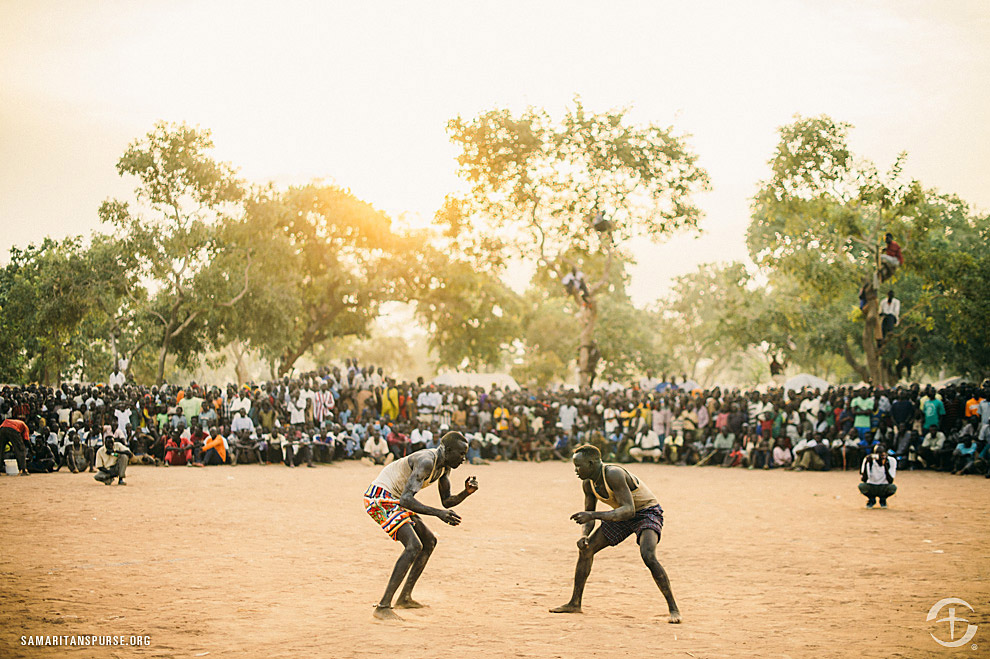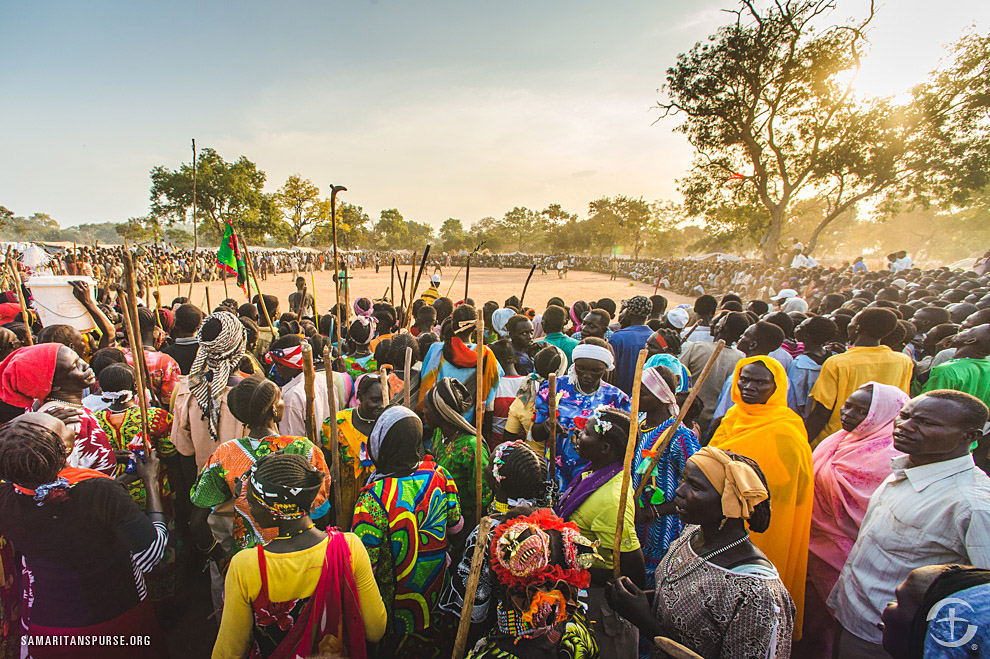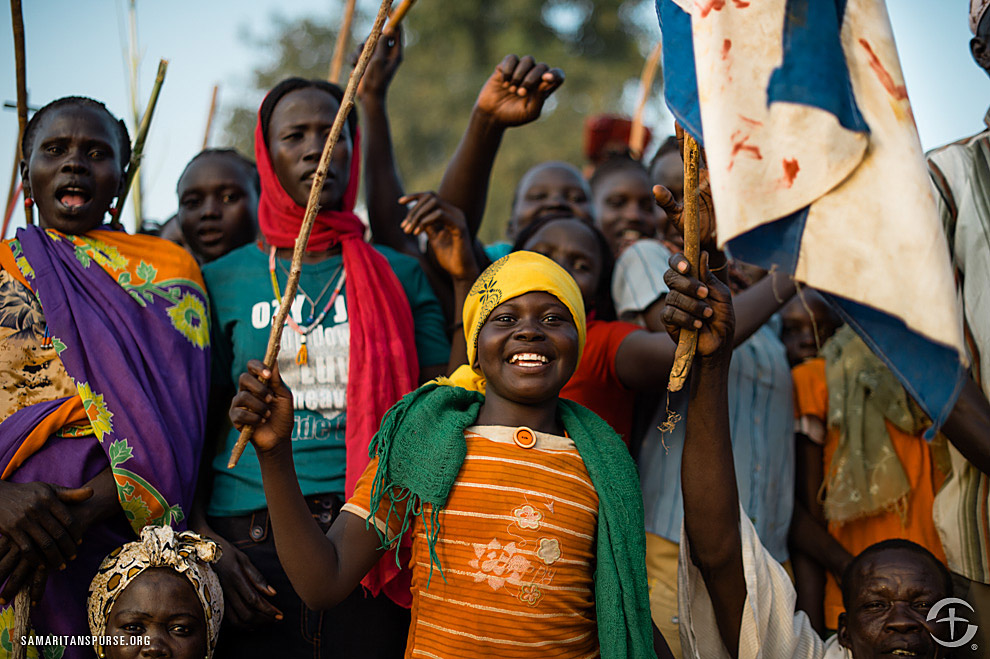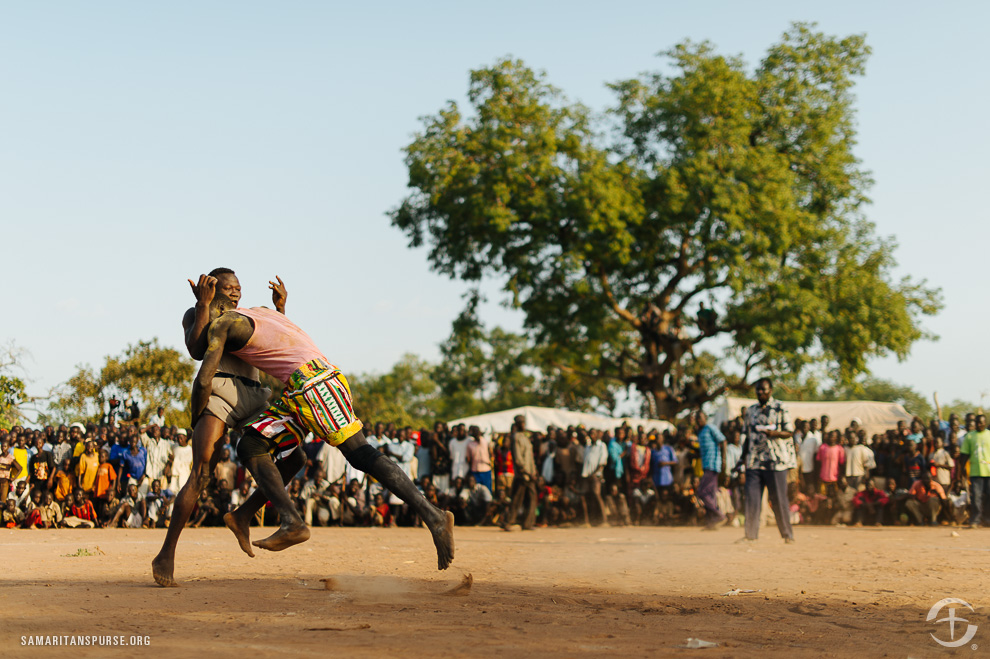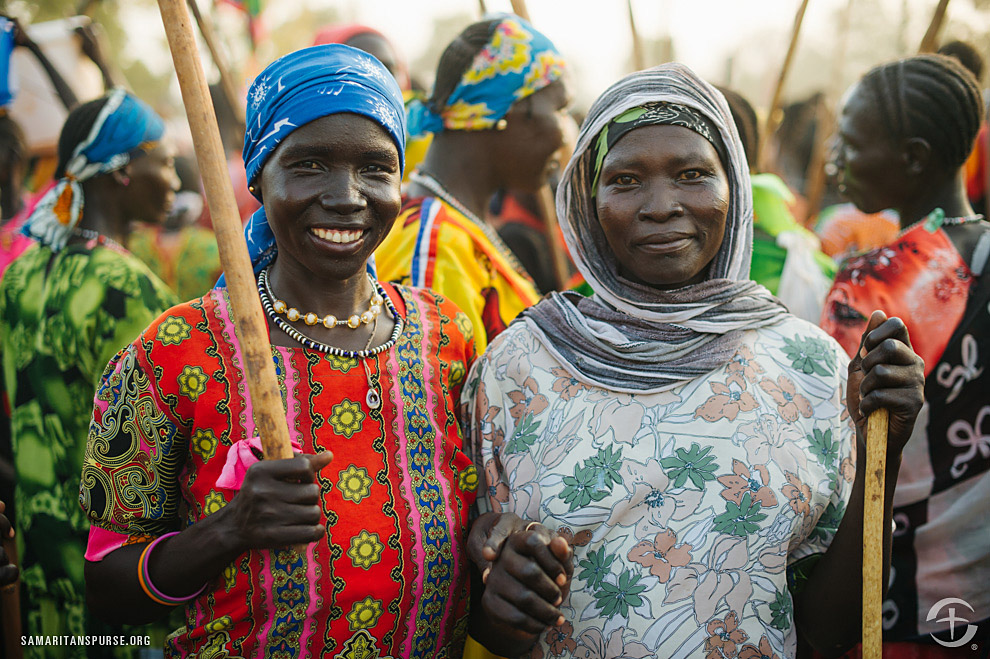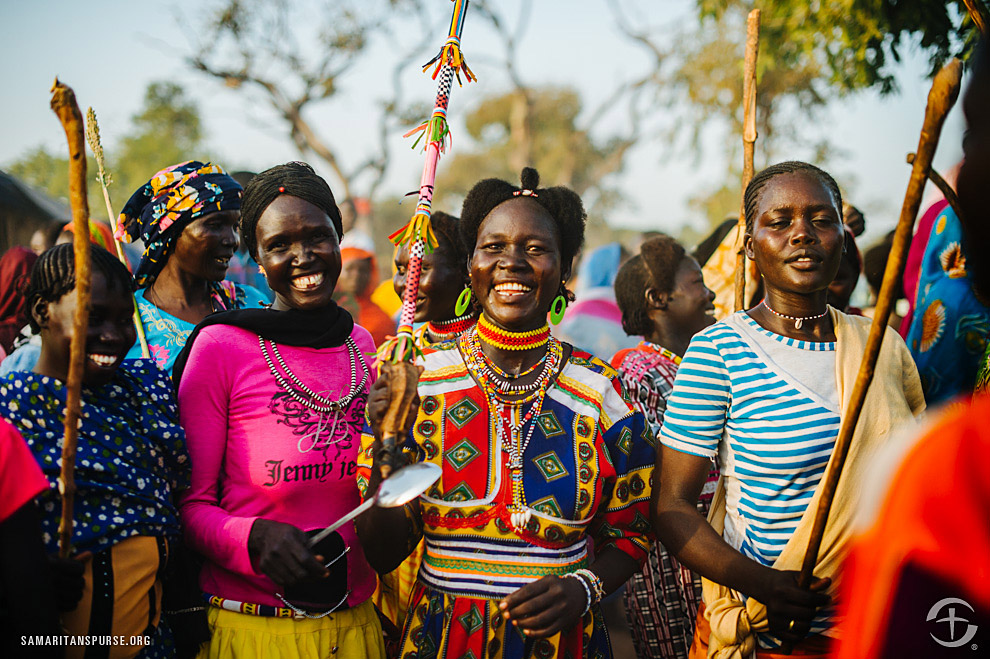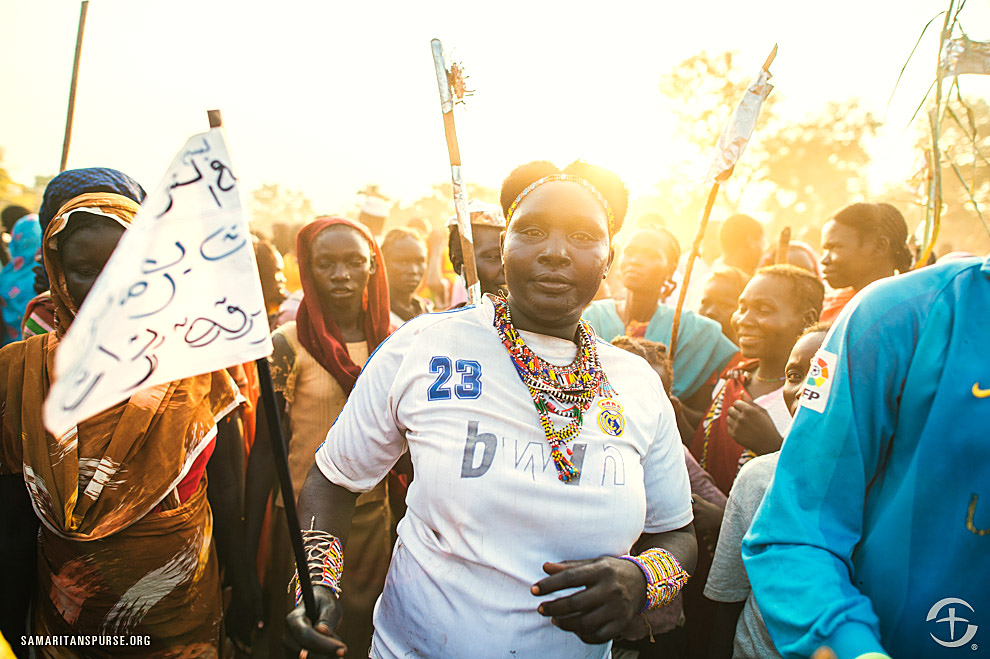Nurse Erin Whitehouse examines a child at the camp’s Stabilization Center. Many refugees arrive in Yida with malnourished children that need immediate care. Mothers throughout the camp know to bring their children to the center if they become ill or need medical attention.
When roads were flooded during the rainy season, the only way to get food to the refugee camp in Yida was to drop it by plane.
Crews were on hand to pick up the 110-pound bags of sorghum, lentils, and grain and take them to the camp storage center.
Samaritan’s Purse has established nine water points throughout the refugee camp, providing clean water for more than 20,000 people per day.
Adult literacy classes are offered at churches that have sprung up throughout the camp. The instructors use the Bible as their text book.
The camp’s most vulnerable women, including widows and mothers who are heads of households, are learning income-generating skills like sewing, jewelry making, embroidery, and weaving. They can sell or trade the goods in the marketplace.
Several thousand spectators gathered to watch a series of inter-tribal wrestling matches, as the strongest men from each clan faced each other in the center of the ring. In the end, the victor was paraded through the marketplace on the shoulders of admiring fans.
Thousands of refugees from the Nuba Mountains gathered to celebrate their culture with unique tribal dances.


